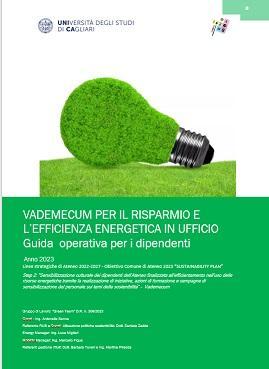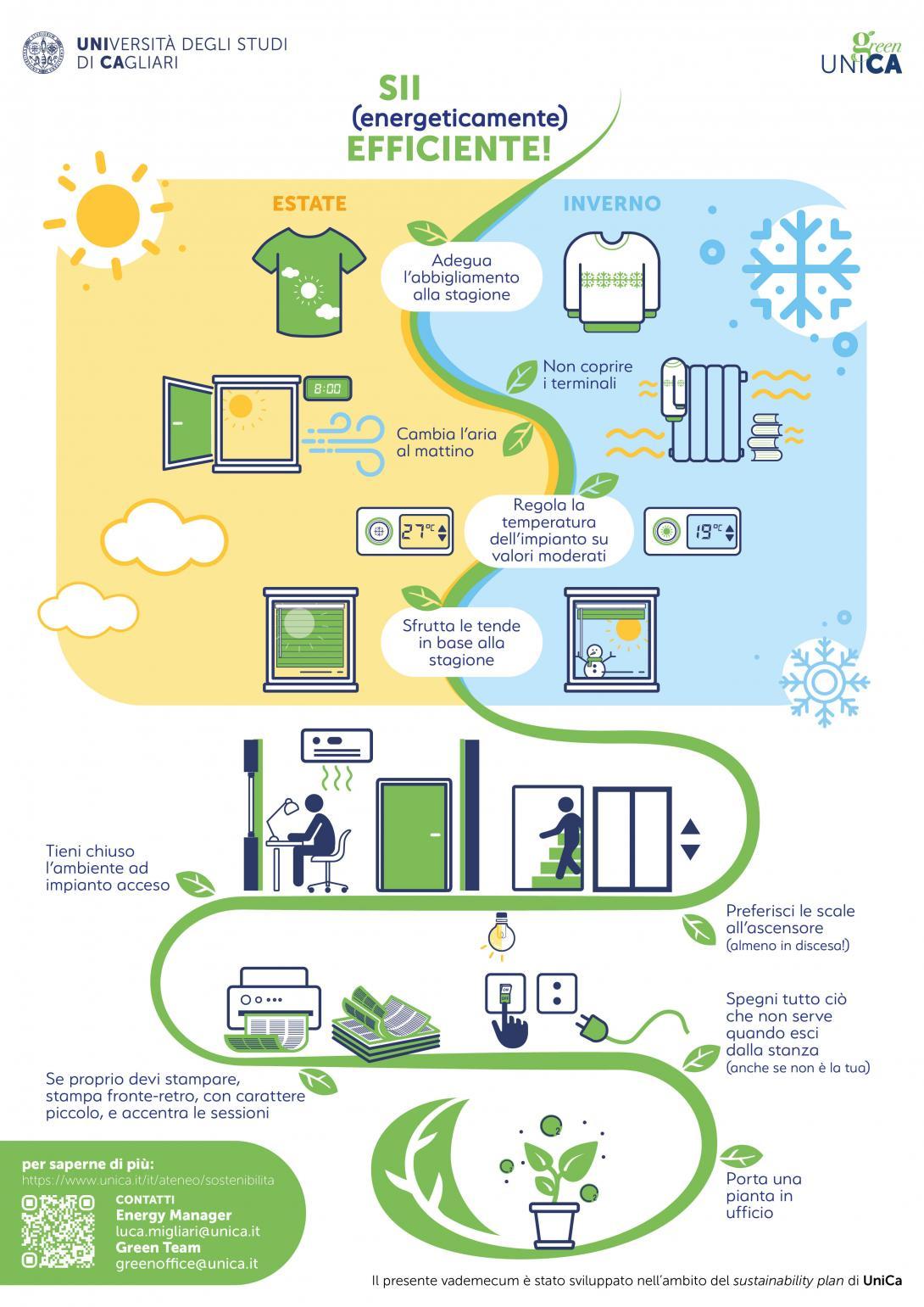
The collection of data on the electricity consumption of all university facilities is the first step in assessing the adoption of the most appropriate measures to reduce it and satisfy it with renewable energies, in compliance with comfort standards and the services provided. To this end, UniCa has also appointed an Energy Manager who, among other things, has the task of disseminating good practices for sustainable energy management within the university community.
Energy efficiency measures and the creation of micro-grids in blocks G and H of the Monserrato University Campus
The interventions involved energy efficiency upgrading with sensors, high-efficiency lamps and motorised blinds connected to KNX and DALI systems, which involved a total of 27 classrooms in Blocks H and G, as well as 8 laboratories, Offices and the Anthropological Museum, corridors, and halls:
- replacement of the air-conditioning system in several classrooms with installation of VRF systems in the roof;
- replacement of fixtures in classrooms on the top floors of Blocks G and H and in laboratory 5 in axis 2 Block H;
- installation of new waterproofing on all the roofs of Blocks G and H (except for the bridge in Block H);
- positioning and connection of 311.26 m2 of vertical photovoltaic facades for a total of 13,849 Wp;
- positioning and connection of 773.77 m2 of photovoltaic canopies roofs for a total of 184,675 Wp
- positioning and connection of 648.70 m2 of photovoltaic roof panels for a total of 135,705 Wp.
Two electric recharging stations were also installed with the relevant equipment (including storage system) to manage the system in the vicinity of the car parks housing the canopies roofs.

The University of Cagliari has decided to implement a programme to raise awareness and promote the efficient use of energy within its facilities, not only by implementing energy efficiency measures, but also by promoting good practices shared by the university population.
To this end, the Energy Manager and the University's Green Team have drawn up a Vademecum for energy saving characterised by a direct communicative effectiveness and an immediate visual and mnemonic impact, facilitating an immediate approach.
The Vademecum aims to suggest virtuous behaviour to the entire university population by using a direct language in which each of us is a protagonist in the path towards a more responsible use of energy resources.
The Vademecum has been produced in full coherence with the "GREEN PAPER - Sustainable Energy Management" drawn up by the Energy Working Group of the RUS - Network of Universities for Sustainable Development.
